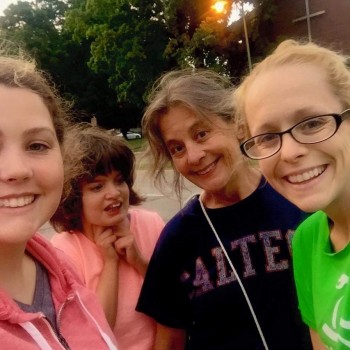
Jessie Grubb, last summer with her mother and two of her four sisters. Her parents hope to build a facility in her memory for adults with developmental disabilities, like her sister, Emma.
CHARLESTON, W.Va. — It was just a running injury.
Last spring, Jessica Grubb felt some pain in her left hip.
But she loved to run — “Run like a girl,” she would say — so she kept going.
It didn’t get better. Swelling developed into a bacterial infection and she had surgery in the summer to fix it.
Last month the infection came back. Another surgery was required — certainly not the best thing, but not too serious.
Her parents drove from Charleston to Ann Arbor, Michigan, to be with her.
They were very careful. Jessie Grubb was in recovery. She had battled heroin addiction for nearly seven years.
Opioid painkillers have an almost identical molecular makeup to heroin. Jessie should not be given opioids after the surgery, her parents told her doctors. If opioids were absolutely necessary, they should be administered under the strictest supervision.
They told the nurses. They told the orthopedist. They told the infectious- disease people. They told the surgeon.
Jessie had the surgery on Feb. 24. It went well. She was discharged a week later, on March 1.
No one had spoken to her discharging doctor.
He wrote Jessie a prescription for 50 oxycodone pills. She filled it at the hospital pharmacy.
That night, she called her parents back in Charleston. After eight days in the hospital, she was tired, she said. She just wanted a good night’s sleep.
They never spoke to her again.
Jessie Grubb died in her sleep.
When the police searched her apartment, eight of the 50 oxycodone tablets were missing…




